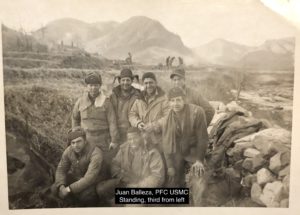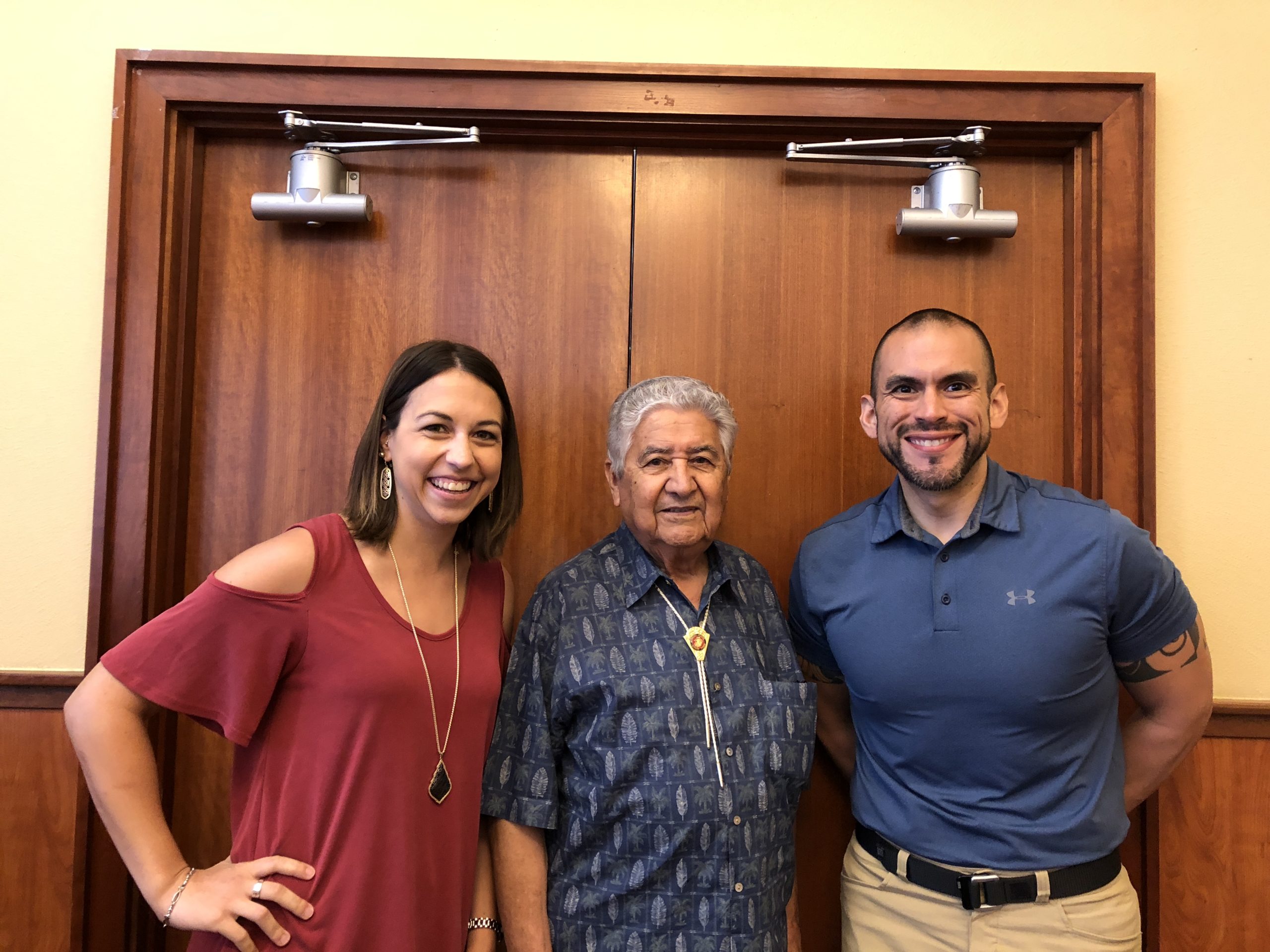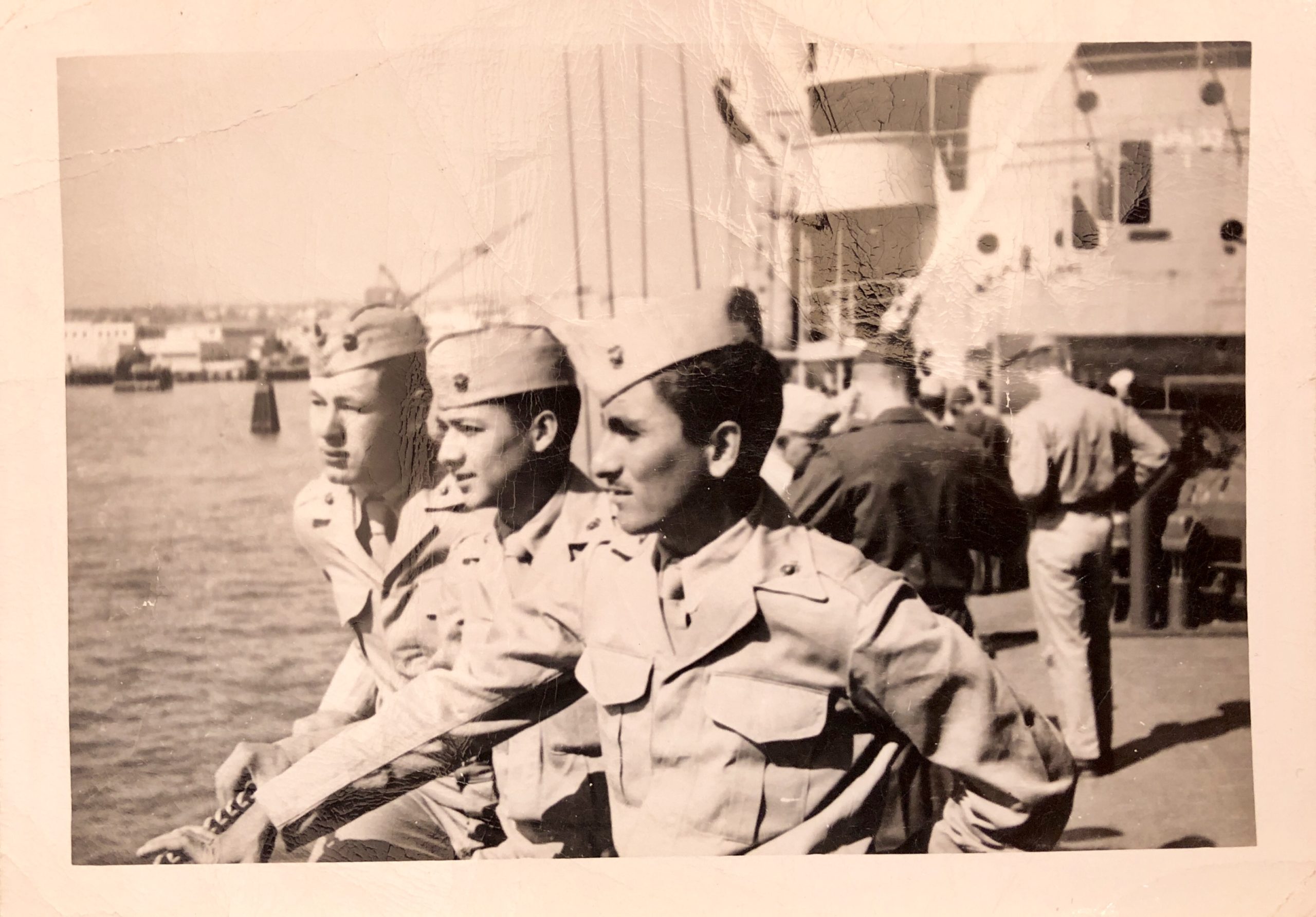
Juan Balleza
Juan Balleza joined the United States Marine Corps at the beginning of his senior year of high school at Fox Tech in San Antonio, Texas. Juan graduated in May of 1950, one month prior to the outset of the Korean War. In July of 1950, Juan was called to active duty and found himself quickly mobilized. In August, he and fellow Marines were transported to Marine Corps Base Camp Pendleton in California. While at Camp Pendleton he received three weeks of training as an 0311 Infantryman.
Juan’s first combat engagement occurred In late September of 1950. As part of the 1st Battalion, 7th Marines, Juan participated in the Second Battle of Seoul which resulted in the recapture of Seoul by United Nations forces.
Subsequent to his engagement in the Second Battle of Seoul, in October of 1950, Juan’s battalion and regiment moved into North Korea. In late November and December of 1950, amid bitter cold, Juan fought in the Battle of the Chosin Reservoir.
After his service, Juan returned to San Antonio.
In 2001, Juan revisited South Korea and was amazed by the modernization of the country as well as the enduring thankfulness of the South Korean people.
Interview, July 14, 2018
Juan Balleza interview, Luby’s Restaurant, San Antonio, Texas.
USS Bayfield, July 1949
Photo provided by Juan Balleza of three Marines. Juan stands center with Alving G. Padilla, Jr., my grandfather, to his left and Freddy De La Rosa to his right.
Korean War - Key Events
January 12, 1950
In a speech to the National Press Club, U.S. Secretary of State Dean Acheson outlines a U.S. Pacific defense posture that includes Japan and the Philippines but does not explicitly include Korea. In fact, he states that, “so far as the military security of other areas in the Pacific is concerned, it must be clear that no person can guarantee these areas against military attack.”
These events are taken from the Encyclopedia Britannica



Comments
Likes 1
You must be a registered user to comment or like - please register to join us!